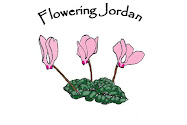
Shortly after I decided to use Roper's book, Cindy Marsch of Writing Assessment Services began offering an Apprentice Workshop, using this very book. Active Son was enrolled post haste and Artist Son just completed Part I and is heading into Part II. The combination of this book and Cindy's tutorial services has been the perfect mix of theory, prompts, and helpful feedback for both sons to begin discovering their own writing voices by imitating the voices of others.
Below is short essay on creativty written by Artist Son, and published on Cindy's writing blog.
The assignment which prompted this essay was from the chapter, "Voices of Definition", and asks the student to take a definition developed in a previous assignment and express it in the voice of Sojourner Truth, former slave and abolitionist, in her speech, "And Ain't I a Woman?"
It is certain that in today’s fallen world creativity is greatly admired. It is generally celebrated in the artwork of modern artists who grab any passing thought and put it on canvas. They are considered “creative” for their splashes of paint and bold strokes of the brush which politely skip over meaning and evoke emotional responses from the viewers. But is that the essence of creativity?
Some say that creativity is free, easy, and merry; that it soars through the clear skies with nothing to clasp it and bring it down. They say that it touches ideas and then dances on with as much reliability as the wind. I’ve tried to integrate these ideas into my own artwork. I’ve tried to chase after my own fantasies. I’ve tried to abandon reality completely. I’ve tried to become enveloped with giddy illusions. I expected a change in my works and assuredly it did come, but I find no real beauty in them now. All I find is confused ideas, so unclear and distant that they are not even distinguishable from one another. And am I not creative?
Others say that creativity is “getting in touch” with one’s inner self, and unleashing it. We all possess a fantastically creative side but it is found within the deep recesses of one's being. I have searched. Nearly every possible aspect of my soul have I brought into the light and examined. When confronted with a blank piece of paper I have closed my eyes and sat in the quiet, seeing, searching, probing within. I did not find it. And am I not creative? Still others say creativity encompasses not only the good, but also the evil, the unproductive and oft destructive. They view dark and morbid intent as a subject of creativity, a thing to dwell in and be moved by. The good, the right, the true; they are forsaken for the pursuit of the wicked, the disparaging, and even the indolent. I also have dipped my fingers in that foul water to test it. What I felt was not the cool refreshing creativity as they called it, but a vile mere that tried to suck me in. I withdrew my hand. And am I not creative?
Even after surfing the wave of fantasies and dreams, and “getting in touch” with my inner self, and languidly waiting for creativity to show up at my door, I found it eluded me. So then, what is creativity and where does it hide? But first: why does creativity exist at all?




4 comments:
I got my start as an adult writer by taking Cindy's online tutorial on the progymnasmata in 2003. She works with adult writers, too, Melissa ...
I feel certain that writing talent runs in your family.
Wonderfully expressed. BTW have you ever seen Francis Schaeffer's How Shall We Then Live on DVD, or read any of his books? You might find his perception of arts as a barometer of culture very interesting. Your son's essay reminded me of him.
Jodi
Melissa, I love reading your blog. I am always inspired and would love to see your family again someday. How does this writing program compare with Susan Wise Bauer's and IEW?
Jessica,
I'm not sure what Susan Wise Bauer's writing program is and I haven't used IEW though I think it is based on imitation--is that correct? If so there may be some ideological common ground, however this book and the tutorial represent a two semester high school course, rather than a full curriculum. Hope that helps. We'd also love to see you all again someday, though I'm sure we'd have to re-introduce all the kids as they've grown so much!
Jodi, I imagine that Artist son will soon be reading Schaeffer and Rookmaaker as he enjoys thinking deeply.
Thanks for the encouragement, Lisa. I'm sure a tutorial would benefit me as well. Good idea.
Post a Comment